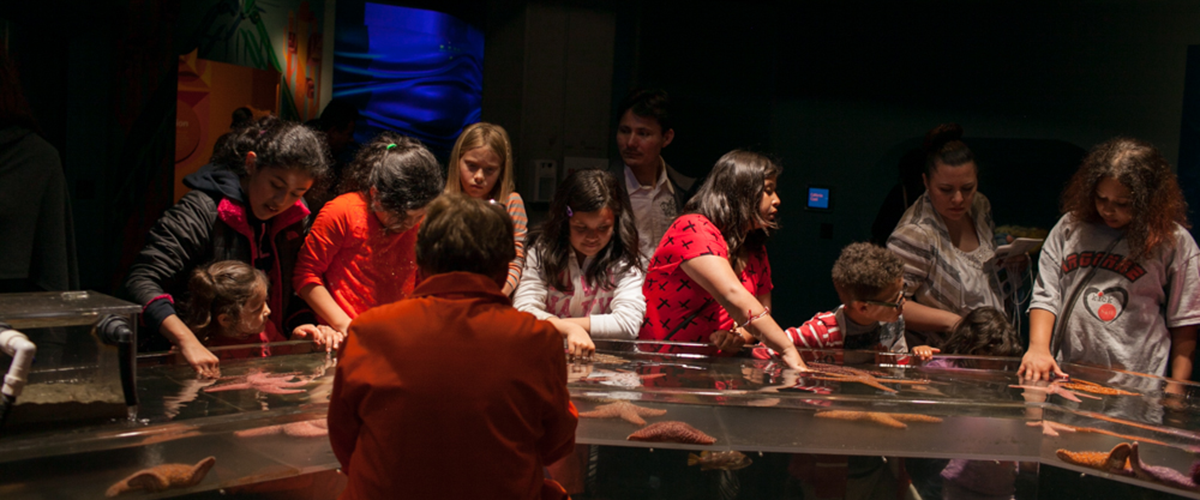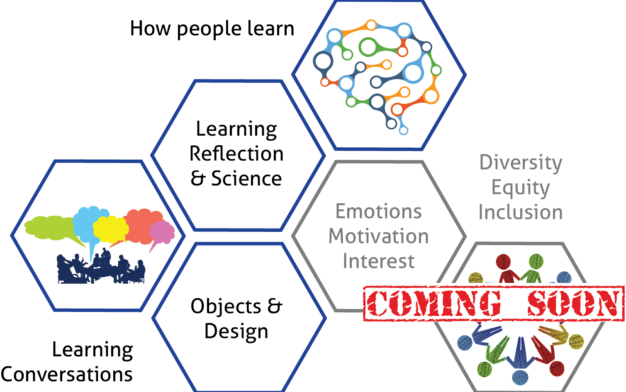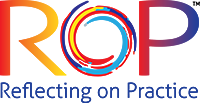

There is a comprehensive, written curriculum for the Reflecting on Practice program to guide RoP Facilitators through implementing the program at their institutions. It details how to lead each activity and discussion, while also providing insights and explanations so that facilitators can make adjustments based on the needs of their community.
Each module includes 3-4 sessions. Each session is about 2 ½ hours long. The write up for each session includes:
- A suggested agenda
- Instructions for getting ready
- Suggested background reading for the RoP Facilitators
- Step-by-step guide for facilitating discussions and activities
- Handouts and worksheets for participants
Module Overviews
Module 1: Learning, Reflections, and Science
Module 1 introduces participants to the methods and foundations of the Reflecting on Practice program.
Session 1: Learning Beliefs, Behaviors and Goals. Participants are welcomed into the program with activities and discussions that explore the foundational ideas on learning.
Session 2: Effective Reflective Practice. Participants engage in discussions about professional learning and reflective practice. They are introduced to two of the video reflection tools used throughout the program.
Session 3: Nature and Practices of Science. Participants consider the nature and practices of science, including why this understanding is important for their work in informal STEM learning environments.
Module 2: How People Learn
Module 2 delves into the big ideas introduced in Module 1 with the “Five Foundational Ideas on Learning.”
Session 1: How People Learn. Participants think more deeply about how people experience learning, and consider teaching and learning strategies with a research discussion on three topics: the brain and prior knowledge, social activities and conversations, and engagement in learning.
Session 2: Learners’ Prior Knowledge. Participants continue the discussion on learning with an emphasis on the critical role of prior knowledge.
Session 3: Whole-Community Video Reflection on Prior knowledge. Participants are introduced to the remaining video reflection tools, and practice using these tools as they watch video of someone from the community and provide feedback on how she/he access and connects learners’ prior knowledge.
Session 4: Critical-Friendship Video Reflections on Prior Knowledge. Participants meet in critical-friendship groups of 3-4 people to review and discuss videos of their practice for the first time.
Module 3: Learning Conversations
Module 3 probes deeper into the significance of talk in learning. Participants consider how best to facilitate conversations in their interactions, depending on their teaching purposes.
Session 1: Talking to Learn. Participants explore what makes quality learning conversations, and examine ideas from research on why opportunities for learners to talk is critical for learning. They are introduced to a tool to facilitate conversations.
Session 2: Facilitating Conversations. Participants continue the discussion on talk with emphasis on how to facilitate conversations to accommodate many ideas and many voices.
Session 3: Whole-Community Video Reflection on Learning Conversations. The community gathers to watch video of a colleague and provide feedback on how she/he engages learners in conversations.
Session 4: Critical-Friendship Video Reflections on Learning Conversations. Participants meet in their critical-friendship groups to review and discuss videos of their practice on facilitating conversations to support learning.
Module 4: Objects & Design
Module 4 explores how objects are used to support learning in informal environments, and how to design programs and activities that support learning.
Session 1: Teaching with Objects. Participants reflect on their use of objects and learn more from research on how learners interact with objects.
Session 2: Designing Learning Experiences. Participants redesign an actual program or activity from their practice, using two RoP Teaching Tools that were used in the design of sessions and hands-on activities throughout the program.
Session 3: Whole-Community Video Reflection on Objects and Design. The community gathers to watch video of a colleague and provide feedback on how she/he uses objects to support learning. Participants also create posters to display how their practice has changed, and share this evolution with others at the institution.
Session 4: Critical-Friendship Video Reflections on Objects and Design. Participants meet in their critical-friendship groups to review and discuss videos of their practice on how she/he uses objects to support learning.
